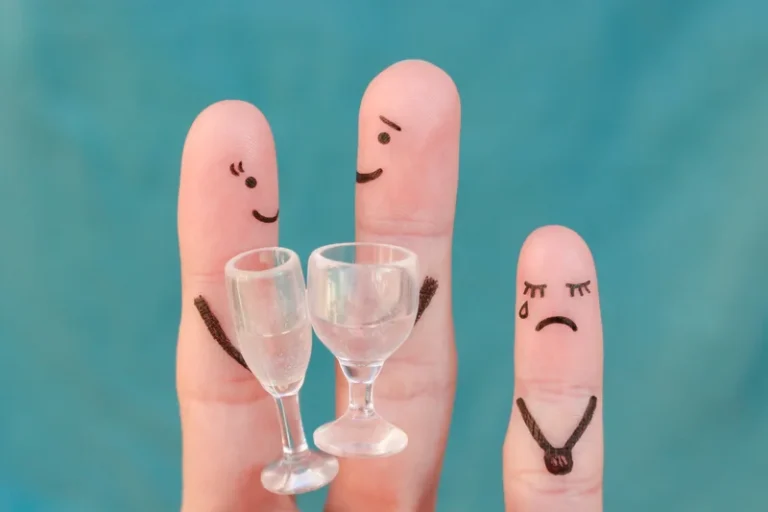Binge Drinking: What It Does to Your Body

You might struggle with the immediate physical consequences—headache, nausea, weakness, poor sleep quality. Or perhaps you later feel shame and embarrassment about things you said and did while under the influence. You binge drinking effects might wake up with questions like, “Did I do something stupid to endanger my loved ones? ” These lapses in memory only add to the overall hangover and sense of dread you experience the next day.
Understanding Binge Drinking
- You may begin to binge drink more often, the days you abstain between sessions becoming fewer.
- After a single night of binge drinking, some of the short-term effects will go away.
- The United States, the United Kingdom, and Spain have emerged as the leading contributors to this field, with the United States spearing research efforts and achieving notable advances.
- In fact, abstaining from alcohol between sessions of excessive alcohol consumption is a key characteristic of binge drinking.
The lack of sleep worsens your depressive systems, so you turn to alcohol again. If you’re a binge drinker, the first step to changing your drinking problem is to understand what factors drive your behavior. Depending on your age, different factors may come Drug rehabilitation into play, but some motivations are common among all age groups.
Understanding excessive drinking

Scientists have theorized that the antioxidants in red wine could play a role in reducing cholesterol, for example. Behavioral therapies, such as cognitive-behavioral therapy (CBT), help individuals recognize triggers and develop healthier coping mechanisms. Support groups like Alcoholics Anonymous (AA) or individual counseling also play a crucial role in long-term recovery, providing accountability and encouragement.
What is binge drinking and what does it do to your body?

When you drink like this, you consume enough alcohol over the course of two hours to raise your blood alcohol concentration to the legal limit of intoxication (0.08 percent in the U.S.) or higher. That translates to about four or more drinks for an adult female or five or more drinks for an adult male. Abstinence is one way that many have successfully stopped binge drinking. Learning how to live a life without alcohol and drugs can be difficult, but it’s possible and it’s rewarding. Through taking steps like going to group support, 12-step meetings, and learning healthy coping mechanisms and skills, binge drinking will not be the solution to problems anymore. Binge drinking on a regular basis can be a characteristic of an alcohol use disorder.

- Information and shareable resources to help others choose to drink less alcohol and be their best.
- A single night of binge drinking has a number of other effects, especially at higher amounts.
- In my own life, I have moderated my drinking by limiting myself to at most two nights per week and at most two drinks per night.
Drinking in moderation is considered to be consuming two drinks or less in a day for men and one drink or less in a day for women. More researchers are looking at the effects of alcohol on the intestinal microbiome — the bacteria and other organisms that live inside us. The cost of excessive alcohol use impacts everyone, whether they drink or not. Knowing what counts as one standard drink can help you figure out how much alcohol you drink and whether it would be considered excessive.
This study aimed to investigate the global performance and progress of binge drinking research using a visualization tool to map patterns and trends. At Mountain Valley Recovery, we recognize the challenges men face in overcoming unhealthy drinking patterns and provide tailored treatment solutions. We provide evidence-based addiction treatment programs in Utah specifically designed for men battling alcohol dependence. Our approach includes long-term recovery planning to help individuals regain control of their lives. Whether addressing binge drinking habits or long-term addiction, we provide the tools and support necessary for sustainable change and lasting sobriety. Although binge drinking does not necessarily mean someone has an alcohol addiction, it can still have severe consequences.

- By addressing the following gaps and opportunities, future research can help us better understand alcohol consumption and guide the development of more effective prevention and intervention strategies 80–82.
- Binge drinking, on the other hand, poses a number of risks to our health, both short- and long-term.
- For example, you might feel tempted to recline on your couch, drink beer, and watch television simply to kill the hours spent alone.
- Science has clearly established that excessive drinking is bad for you.
- It’s not uncommon for people to get defensive when others point out their unhealthy drinking habits.
Recognizing these differences is crucial for recognizing problematic drinking behaviors and seeking appropriate treatment. Over time, frequent binge drinking can lead to severe long-term consequences, including a life-threatening addiction to alcohol. This page will go over the effects and risks of binge drinking, as well as treatment options for alcohol addiction. According to the CDC, about 178,000 people die from excessive alcohol use each year in the United States.
- Five years later, the Covid-19 pandemic has turned people against a cutting-edge medical technology.
- In order to know how much alcohol you’re consuming, it’s good to understand how much goes into a drink you’re pouring for yourself.
- However, binge drinking can increase your risk of developing alcohol use disorder.
- Too often, people will have their first few drinks quickly, which usually leads to intoxication and additional drinks.
- It might be beneficial for you to get help from an addiction counselor or physician.
- This makes it difficult to control your consumption and can lead to intoxication much earlier than expected.
- This video explores the consequences of binge drinking at a teenage party.
What Does It Mean To Have a Substance Abuse Problem?
Even older adults can overestimate their tolerance and wind up drinking far more than they can handle. Maybe you feel overconfident in your ability to drive while intoxicated, or you don’t think of the risks involved with physical stunts or going home with a stranger. You might start the night with the intention of drinking one or two beers. An hour or two later, you’re more intoxicated than you wanted to be. Although drinking this much might not seem like a big deal in the moment, you may regret your choices later.